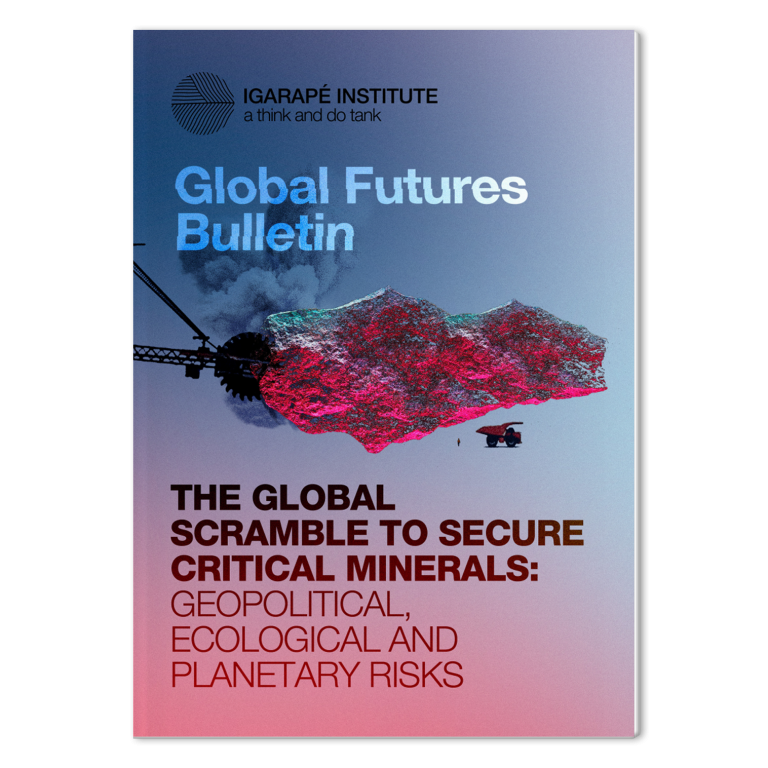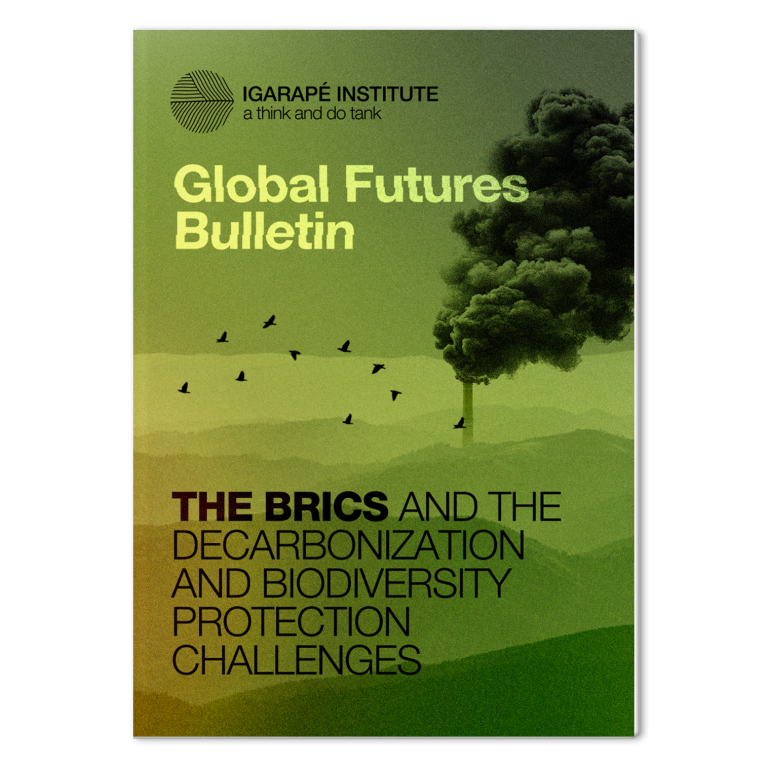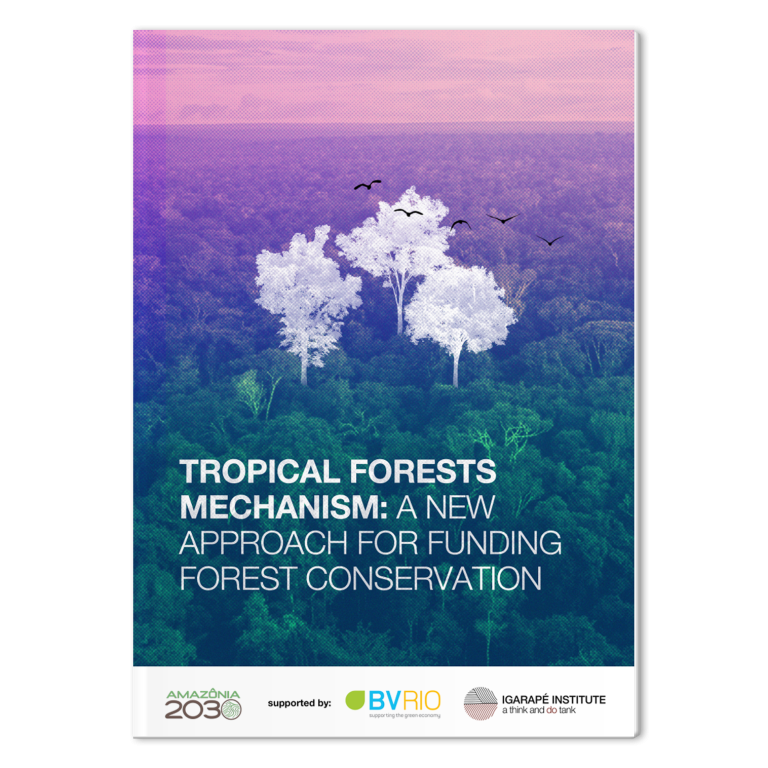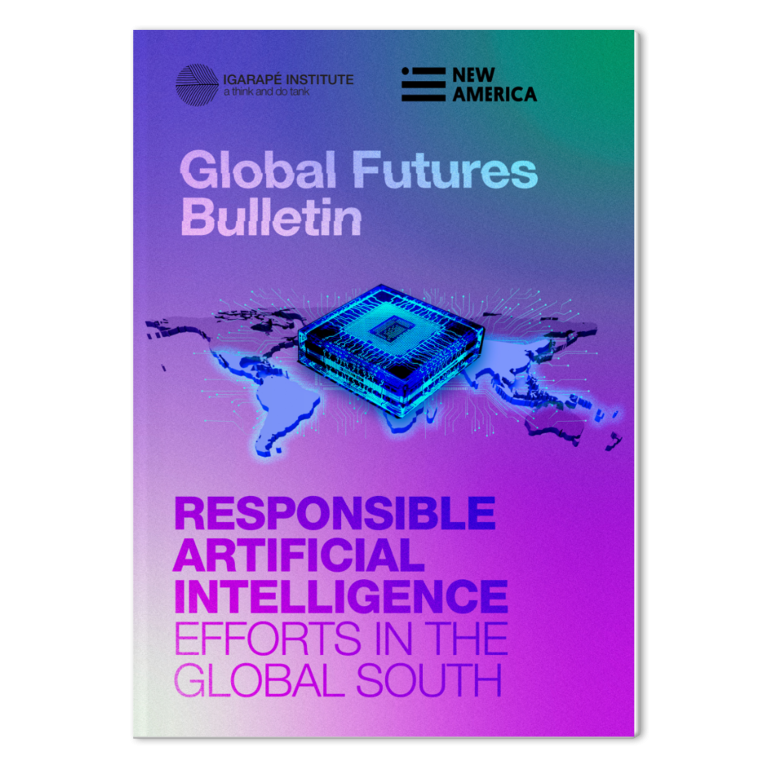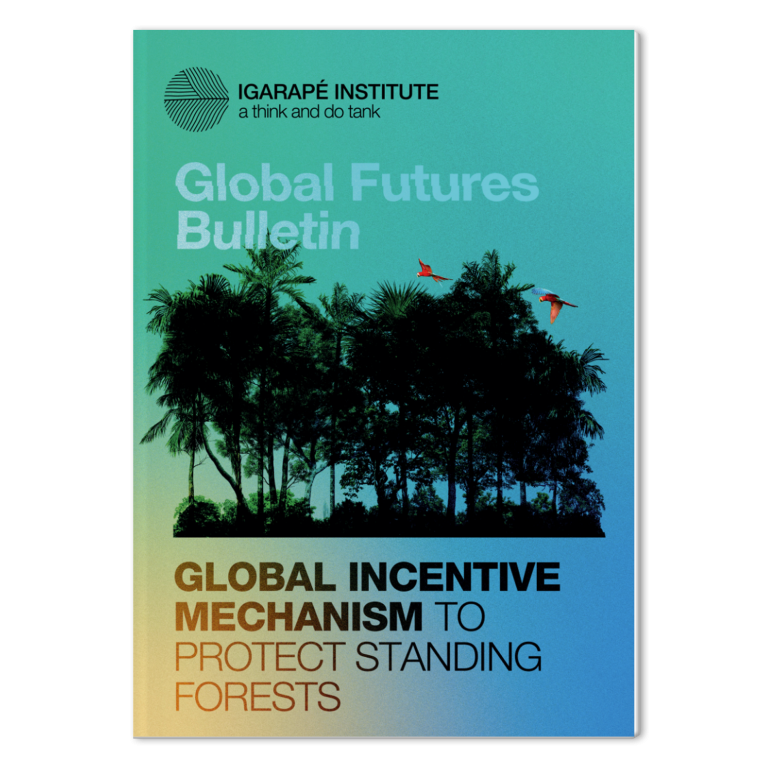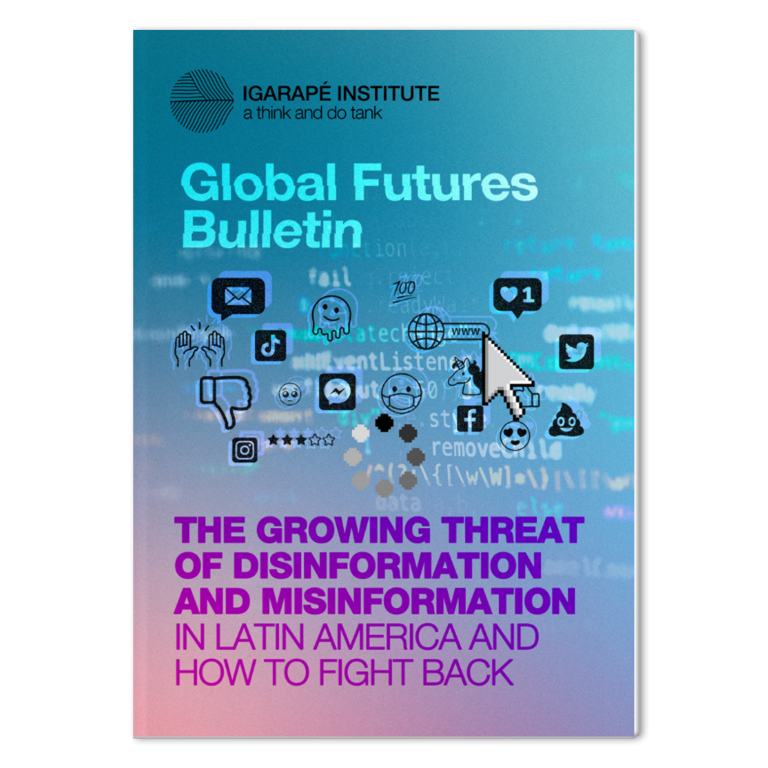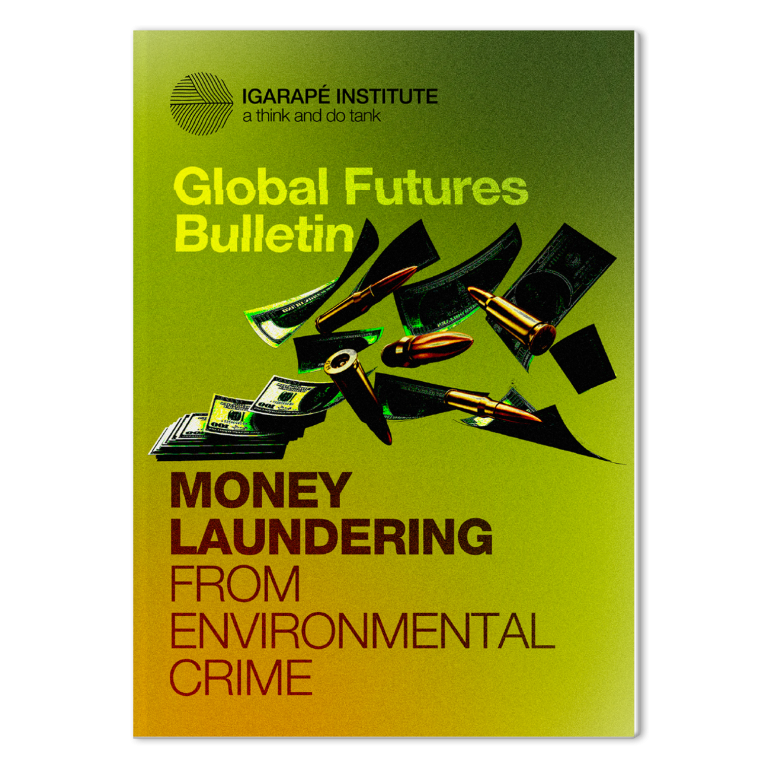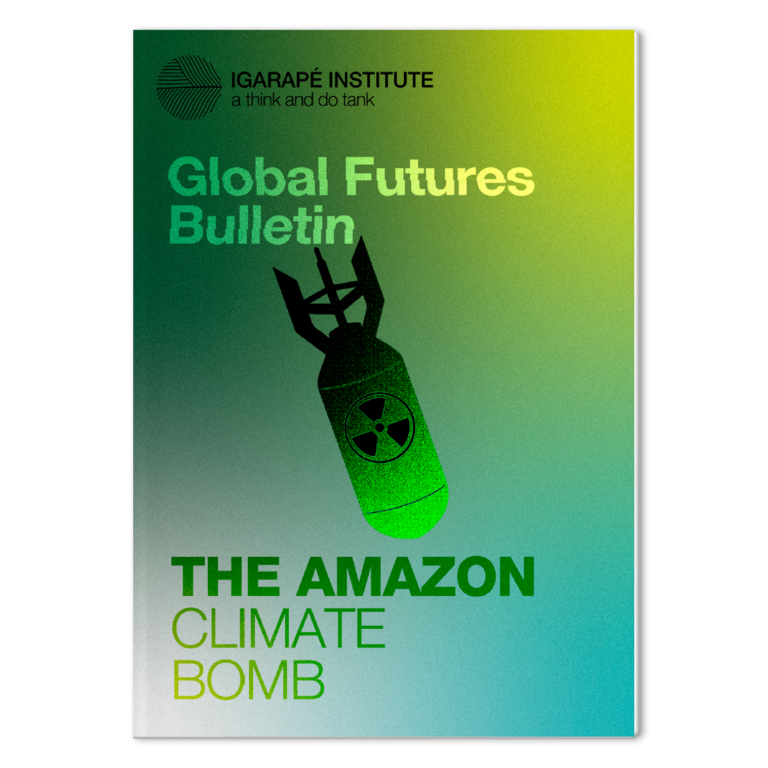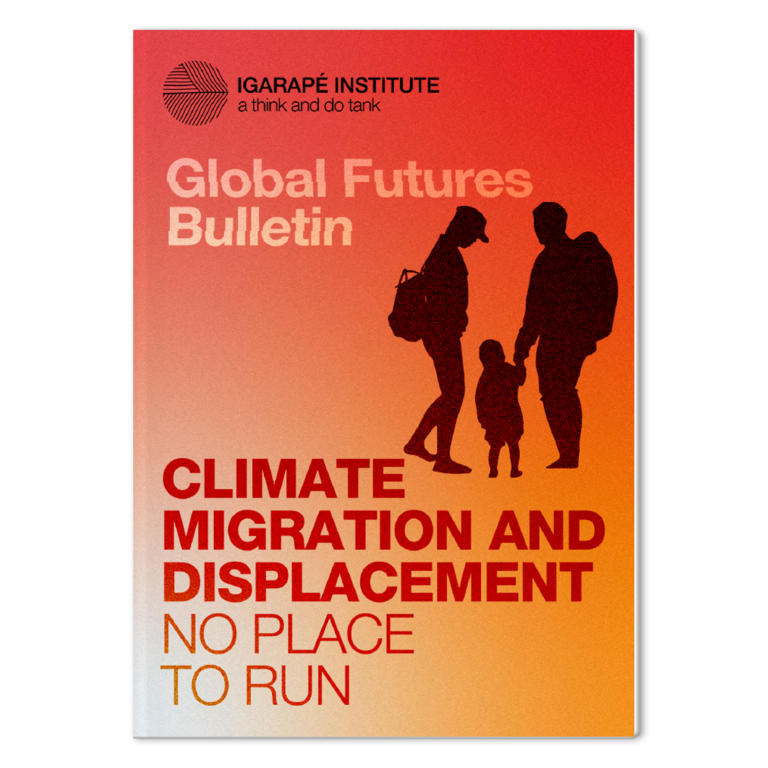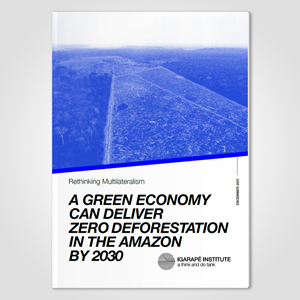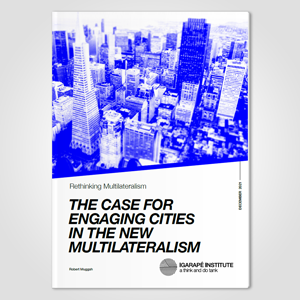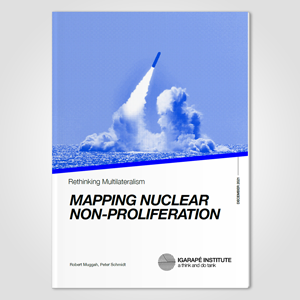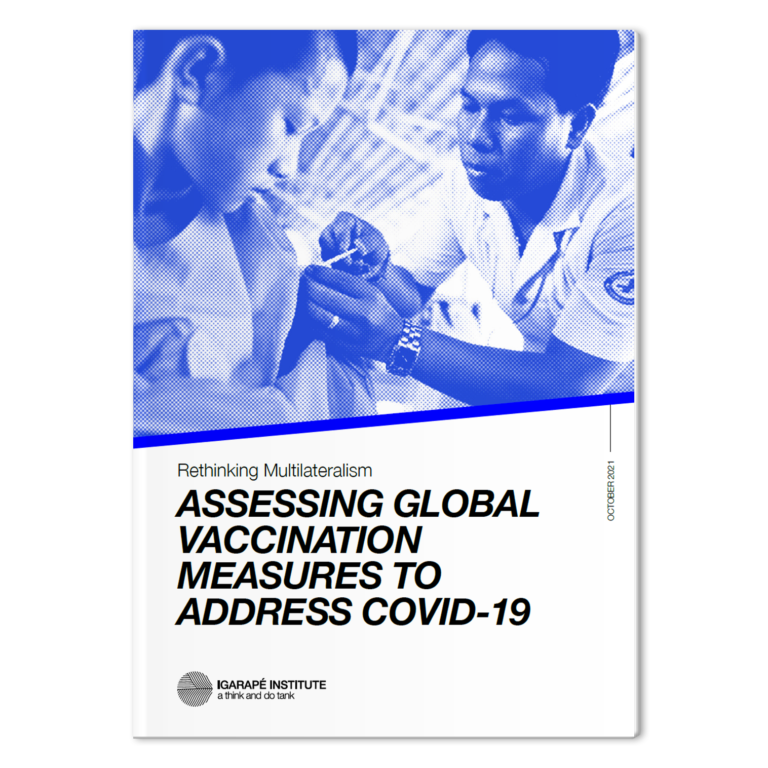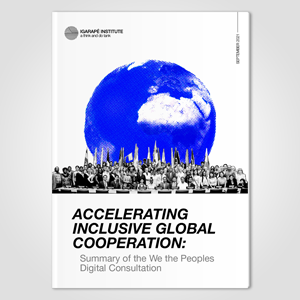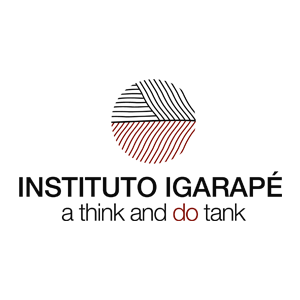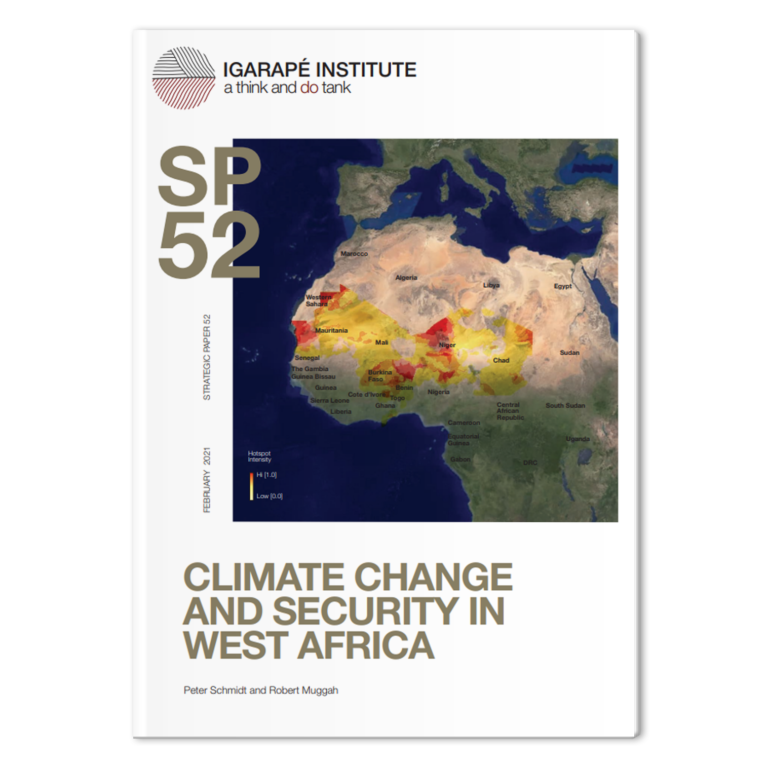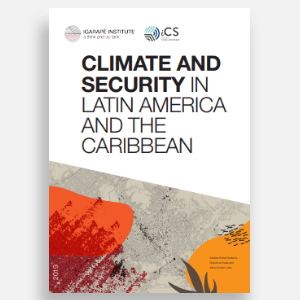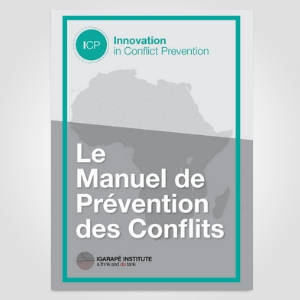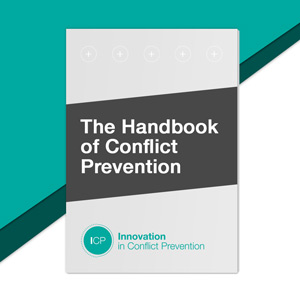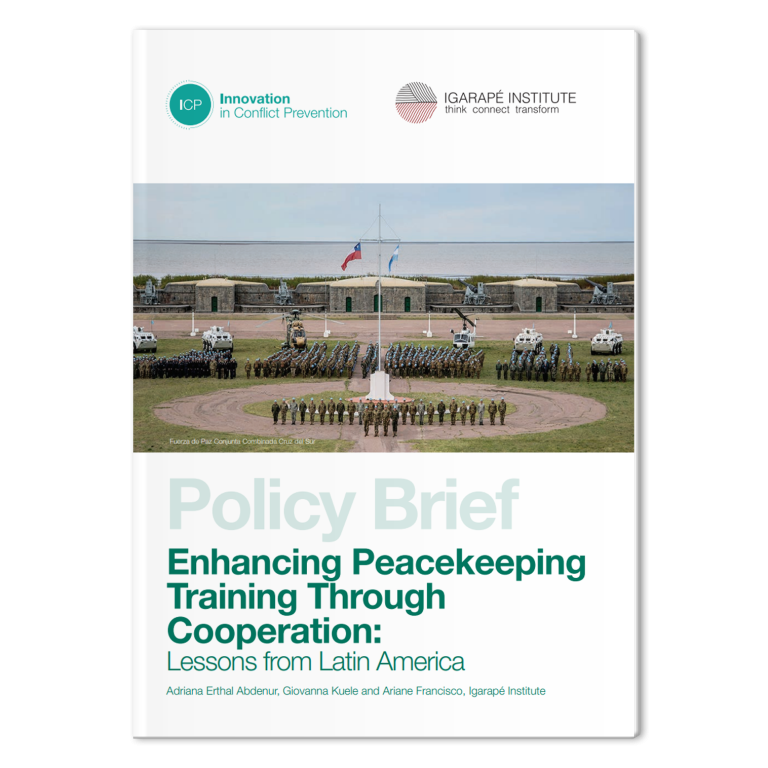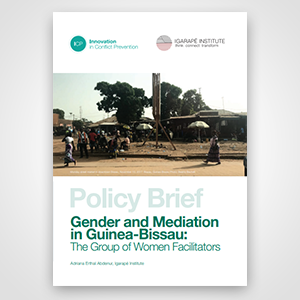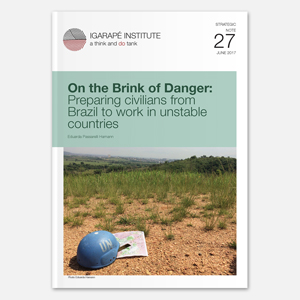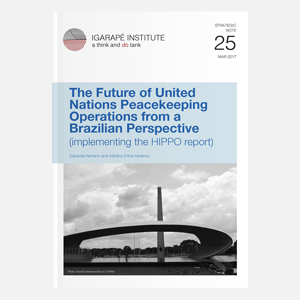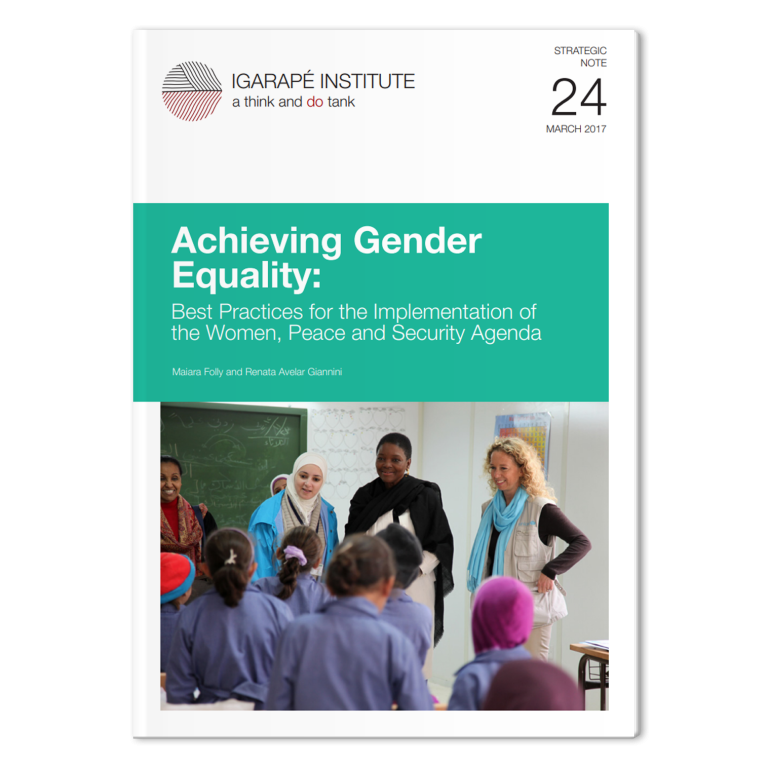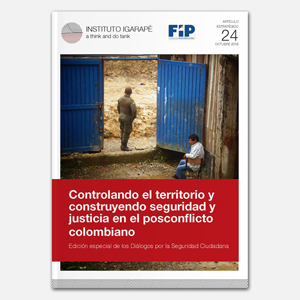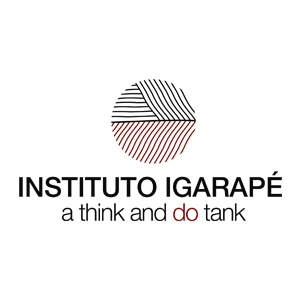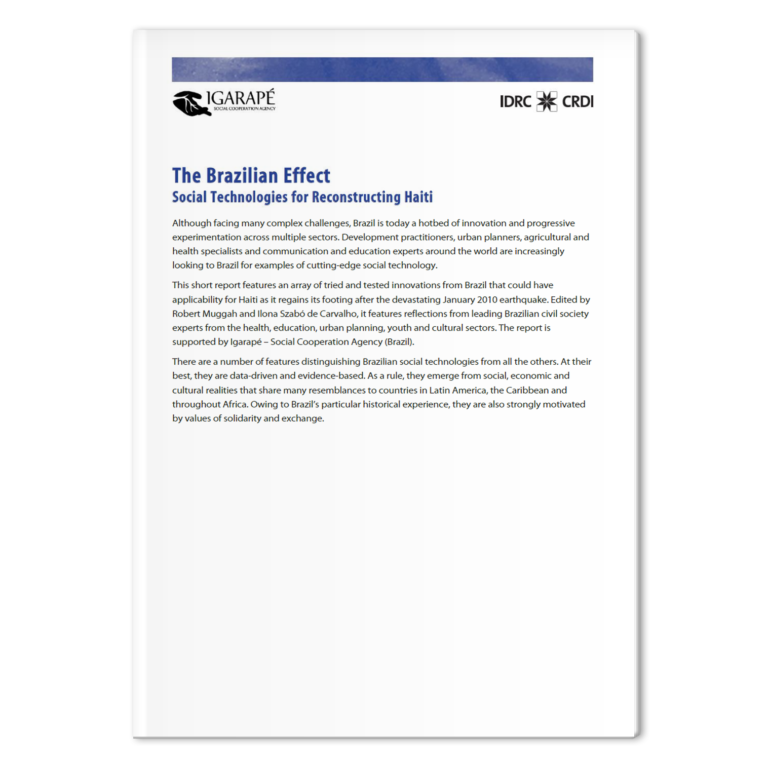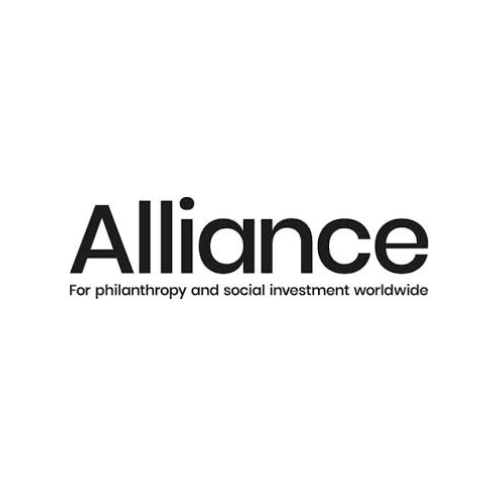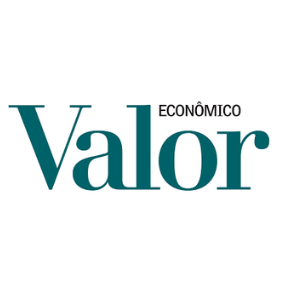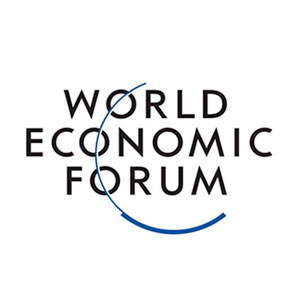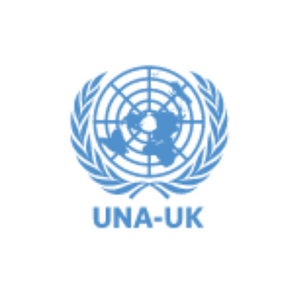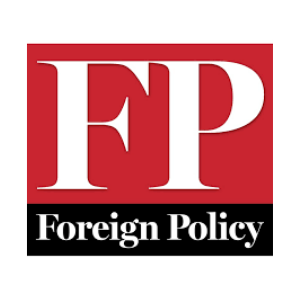International Cooperation - Instituto Igarapé (original) (raw)
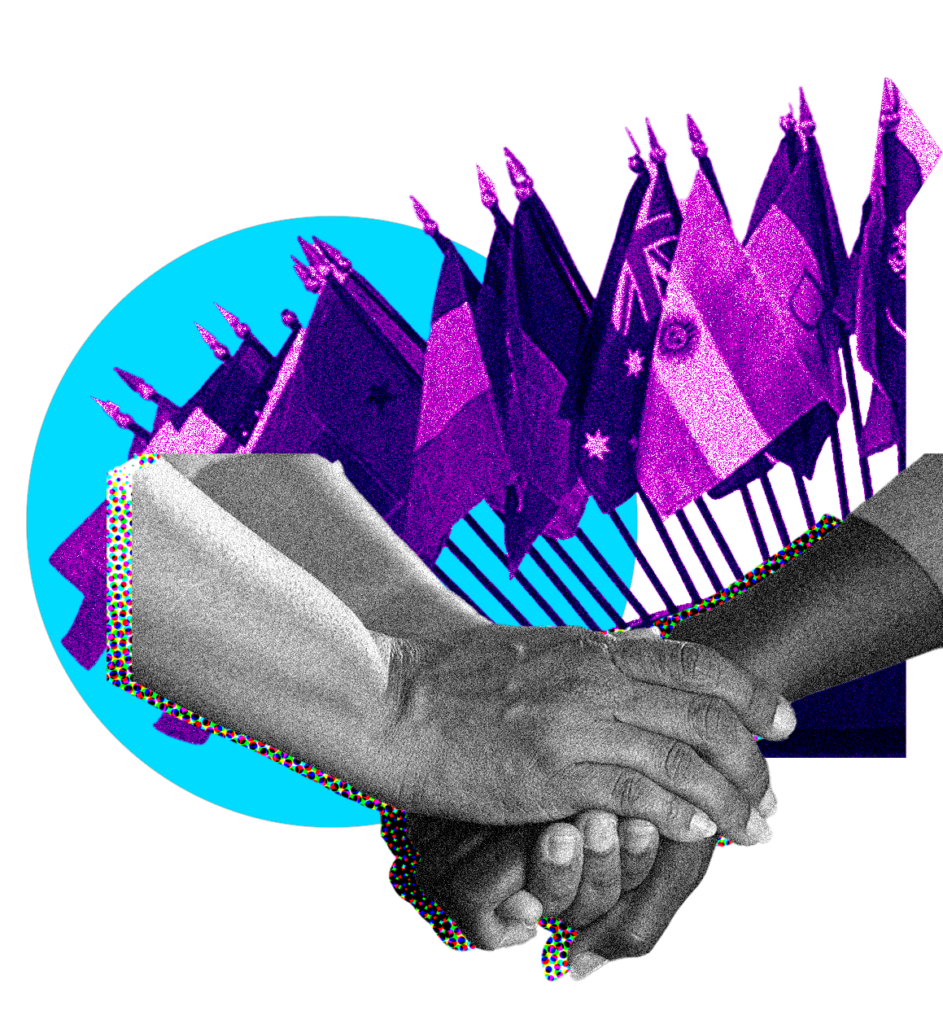
The world is facing a triple planetary crisis, which includes climate disruption, biodiversity loss, and increased pollution. In addition to threats to public health and geopolitical instability, these crises are associated with a host of negative impacts—spanning from the widening of inequalities and spikes in energy prices to the disruption of supply chains, food security, and global security, with an elevated risk of nuclear war.
The International Cooperation Program of the Igarapé Institute aims to collaborate for more effective, inclusive, and networked multilateralism through three main pillars. First, the enhancement of global governance and reform of the United Nations. Second, the strengthening of resilience to systemic risks. Lastly, the acceleration of a clean and just energy transition, as well as nature-based solutions.
Our actions include: the participation of the President of the Igarapé Institute in the UN’s Secretary-General High-Level Advisory Board on Effective Multilateralism (HLAB); support for the Executive Office of the United Nations Secretary-General in developing of Our Common Agenda; and projects dedicated to addressing armed conflicts, urban violence, and other sources of fragility, as well as fostering sustainable development and the 2030 Agenda, in partnership with multilateral organizations, bilateral agencies, non-governmental organizations, and the private sector.

We will be present at the G20 Summit in Rio de Janeiro, closely following the events, especially those parallel to the Leaders’ Summit, including G20 Social.

We are actively engaged at COP29 in Baku, Azerbaijan, closely following negotiations and leading several side events.

We were actively engaged at Biodiversity COP 16 in Cali, closely following negotiations and leading several side events.
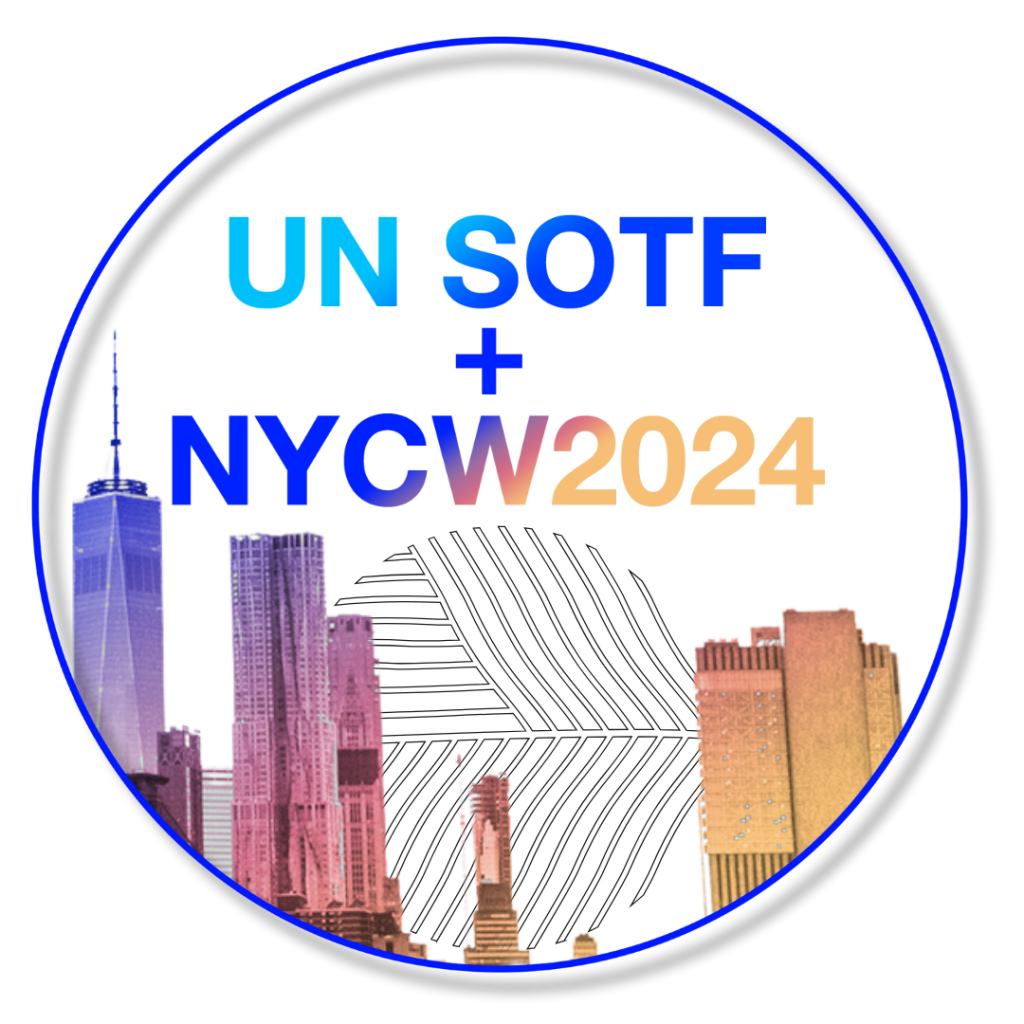
We were actively engaged in New York during the Climate Week and the UN Summit of the Future, organizing and speaking at a series of high-level events.
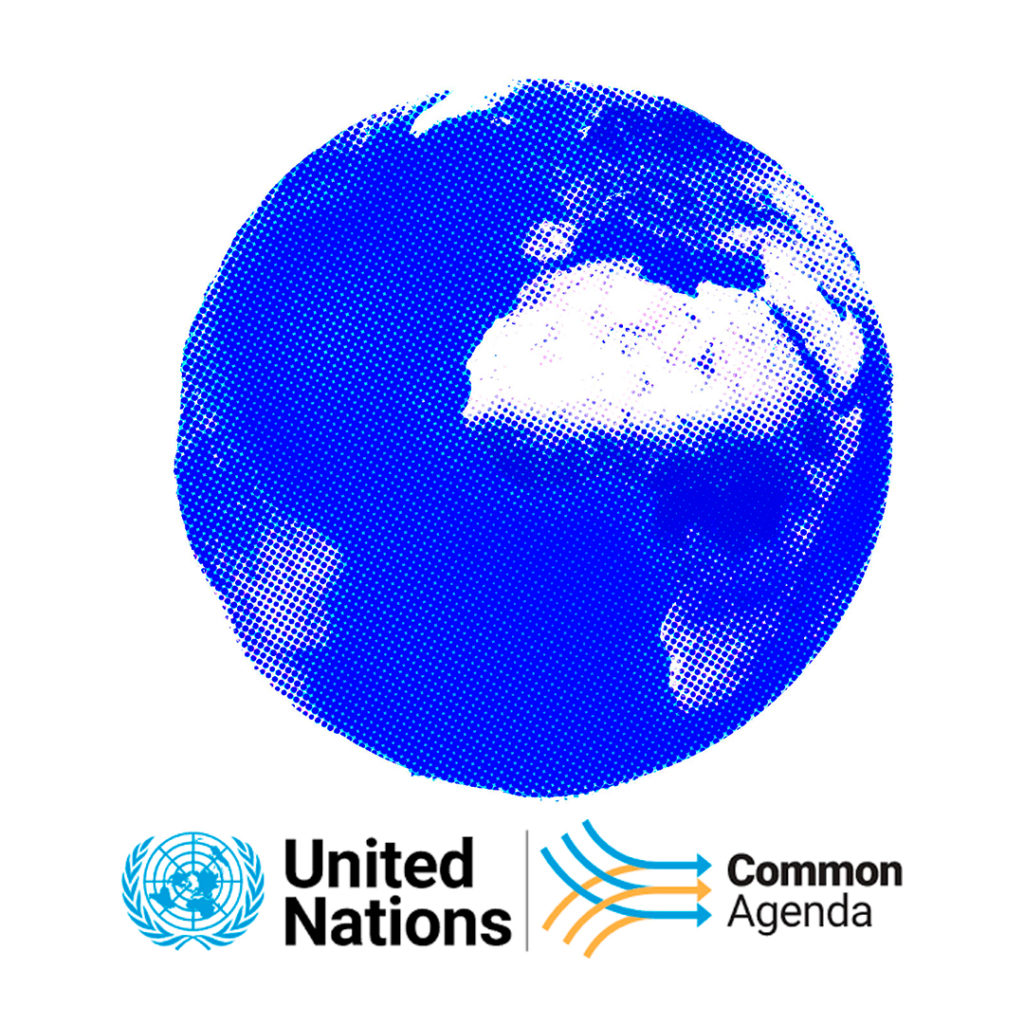
Comprised of input from academics, youth, civil society and led by the executive office of the United Nations Secretary-General, Our Common Agenda identifies 12 areas in need of strengthened multilateralism.
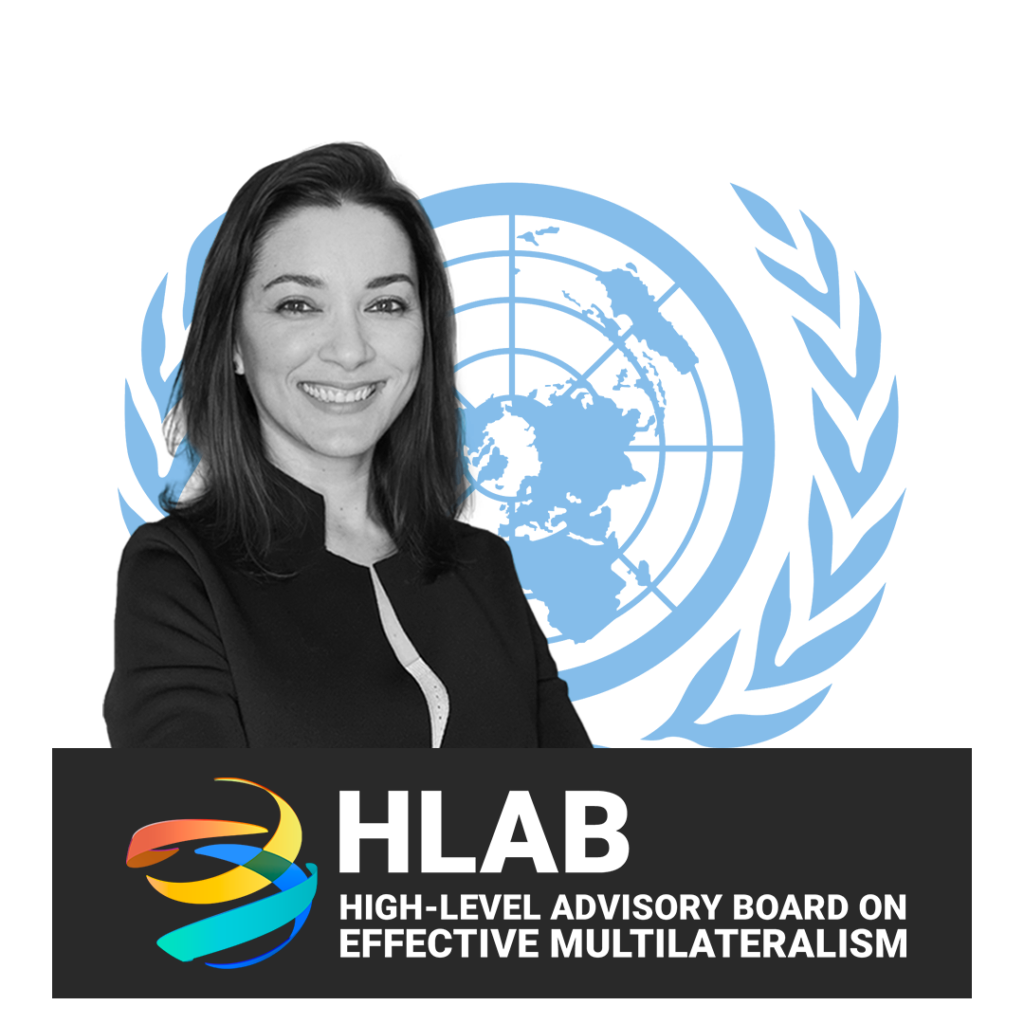
The president and co-founder of Instituto Igarapé Ilona Szabó was appointed to the UN Secretary General’s High-Level Advisory Board on Effective Multilateralism, where she can make concrete suggestions for more effective multilateral arrangements across a range of key global issues.

Analysis of the flows and dynamics of Forced Migration and Refugees, seeking to promote the advancement of effective legislation and public policies aimed at welcoming and integrating internally displaced persons, migrants and refugees, especially in Latin America.
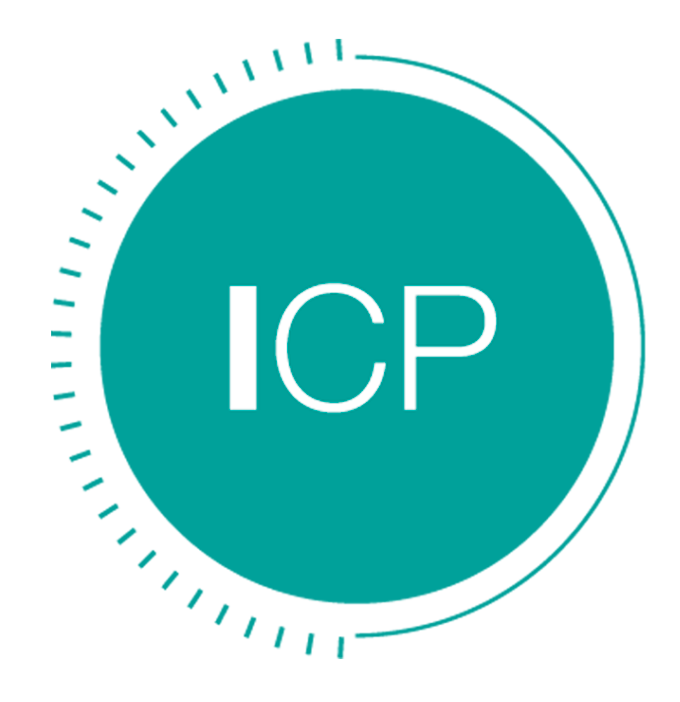
Innovation in Conflict Prevention (ICP) is a project that seeks to identify promising approaches, responses and practices in the prevention of armed conflict, focusing on six case studies from countries in Africa.

The Brazilian Network for Research on Peacekeeping Operations (REBRAPAZ) was launched in November 2016. Since then, it has organized around 20 events, developed a strategic plan.
Publications in International Cooperation
Global Futures Bulletin: The Amazon Climate Bomb
Rampant deforestation and degradation are pushing the Amazon Basin to a dangerous tipping point that could jeopardize its vast carbon capture and water production potential, with serious consequences for...
Mapping nuclear non-proliferation
The publication “Rethiking Multilateralism – Mapping nuclear non-proliferation” maps out networked multilateralism, including in relation to nuclear non-proliferation initiatives. The principal goal is...
Workers: New social contract proposal
The publication “Workers: new social contract proposal” calls for a new social contract, emphasising green, equitable and inclusive recovery and resistence, and urge commitment to demands...
Accelerating inclusive global cooperation
The world is facing multiple connected, cascading and compounding mega-threats. These challenges range from climate change, pandemic outbreaks and deepening inequality to massive digital vulnerabilities...
The Handbook of Conflict Prevention
Executive Summary Conflict prevention has a long history within the context of the international peace and security architecture. In recent years, there has been a push to vitalize the idea. The new...
Gender and Mediation in Guinea-Bissau
On July 10, 2017, the President of Guinea Bissau, José Mário Vaz, met politician Domingos Simões Pereira, who had served as Prime Minister from 2014 to August 2015. Although Pereira remained head of the...
Brazil's Participation in MINUSTAH (2004-2017)
Brazil’s contribution to United Nations (UN) missions started exactly 70 years ago, when Brazilian military officers and diplomats participated in the first multinational team authorised by the Organisation...
Strategic Note about a relatively new phenomenon in international relations: since the nineties, there has been an increasing number of civilian experts who work in highly unstable contexts, once restricted...
Esta Nota Estratégica tem como objetivo destacar boas práticas na implementação de diferentes planos nacionais de ação (PNA's).
Some of our latest outputs
in Internacional Cooperation
President Donald Trump has suggested that minerals beneath Ukraine could be worth trillions of dollars and that they could help shore up vital U.S. supply chains. Ukrainian President Volodymyr Zelensky...
Earlier this month, Juliette Dorson, a 50-year-old Haitian caterer, was shot while working an event in Port-au-Prince. Her business partner, Luc, died in the attack. She survived, but barely. For residents...
The global development industry is facing a reckoning. Long reliant on Western donors, the sector is grappling with deep and sudden cuts to official development assistance. The crisis in aid affects tens...
A world in crisis needs a functioning civil society. But today, three out of four people live under authoritarian regimes that are determined to stifle civil society – and even those in liberal democracies...
Under Brazil’s presidency, the social agenda of the G20 has gained significant focus this year, with proposals addressing three key priorities of the country’s leadership: poverty alleviation, reform of...
The world is confronting multiple intersecting geopolitical events with highly unpredictable consequences
The COP26 in Glasgow may be the world’s last best chance to confront the most pressing global catastrophic risk of our time
Cities are the front line of climate change as perpetrators, victims, and problem-solvers
It is conceivable that 2021 will be remembered as the year we reached a climate action tipping point — and not a moment too soon
Yet now more than ever, humanity’s collective future hinges on effective cooperation
